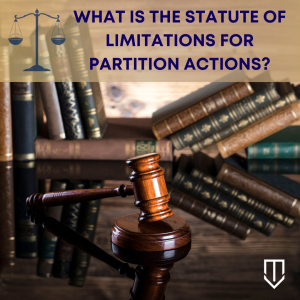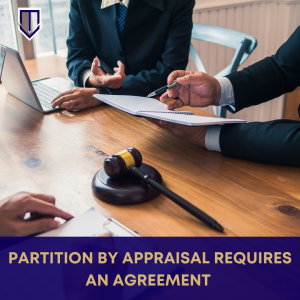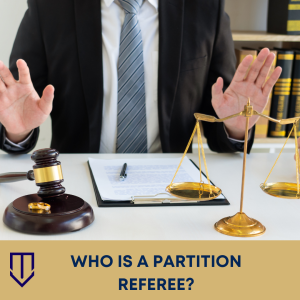 In California, property subject to a trust can be partitioned, though with some additional wrinkles to the regular partition process. Because trusts can often involve successive estates with future and present property interests, litigants should take care to understand the law regarding trusts before beginning such an action.
In California, property subject to a trust can be partitioned, though with some additional wrinkles to the regular partition process. Because trusts can often involve successive estates with future and present property interests, litigants should take care to understand the law regarding trusts before beginning such an action.
At Underwood Law Firm, our attorneys are more than familiar with partitions and the complexities such lawsuits can entail, particularly when trusts are involved. With our attorneys at your side, you can be sure that we will best assist you in achieving your litigation objectives.
 California Partition Law Blog
California Partition Law Blog


 Slander of title is quite the unique cause of action. As the name implies, it involves defamatory or slanderous activity but not against any person or personal interest. Instead, a slander of title involves activity that calls the state of your title into doubt (by, for example, filing an unwarranted lis pendens) that diminishes the value of your property.
Slander of title is quite the unique cause of action. As the name implies, it involves defamatory or slanderous activity but not against any person or personal interest. Instead, a slander of title involves activity that calls the state of your title into doubt (by, for example, filing an unwarranted lis pendens) that diminishes the value of your property.  In most cases, no. Instead, the statute of limitations most frequently bars a partition action when a party’s rights to the property have lapsed due to an ouster.
In most cases, no. Instead, the statute of limitations most frequently bars a partition action when a party’s rights to the property have lapsed due to an ouster.  A partition by appraisal is an alternative method of partition that occurs when the parties to a
A partition by appraisal is an alternative method of partition that occurs when the parties to a  In California, in many
In California, in many  Even when a party finally secures a judgment of partition, the property itself must still be sold (or partitioned in another way). This raises a brand-new set of issues for litigants as they attempt to figure out the terms of sale, when the property should be sold, and, most importantly, the asking price.
Even when a party finally secures a judgment of partition, the property itself must still be sold (or partitioned in another way). This raises a brand-new set of issues for litigants as they attempt to figure out the terms of sale, when the property should be sold, and, most importantly, the asking price. The appointment of a partition referee is one of the most important aspects of a
The appointment of a partition referee is one of the most important aspects of a  Even when a party finally secures a judgment of partition, the property itself must still be sold (or partitioned in another way). This raises a brand-new set of issues for litigants as they attempt to figure out the terms of sale, when the property should be sold, and, most importantly, the asking price.
Even when a party finally secures a judgment of partition, the property itself must still be sold (or partitioned in another way). This raises a brand-new set of issues for litigants as they attempt to figure out the terms of sale, when the property should be sold, and, most importantly, the asking price. In most partition actions, the court appoints a partition referee in order to see that the property is sold or properly divided. The job of a Partition referee requires one to carry out several responsibilities and obligations. The purpose of this article is to provide some information on a partition referee’s duties and authority under the partition statutes.
In most partition actions, the court appoints a partition referee in order to see that the property is sold or properly divided. The job of a Partition referee requires one to carry out several responsibilities and obligations. The purpose of this article is to provide some information on a partition referee’s duties and authority under the partition statutes.  The Partition of Real Property Act (PRPA) is an exciting new development in
The Partition of Real Property Act (PRPA) is an exciting new development in